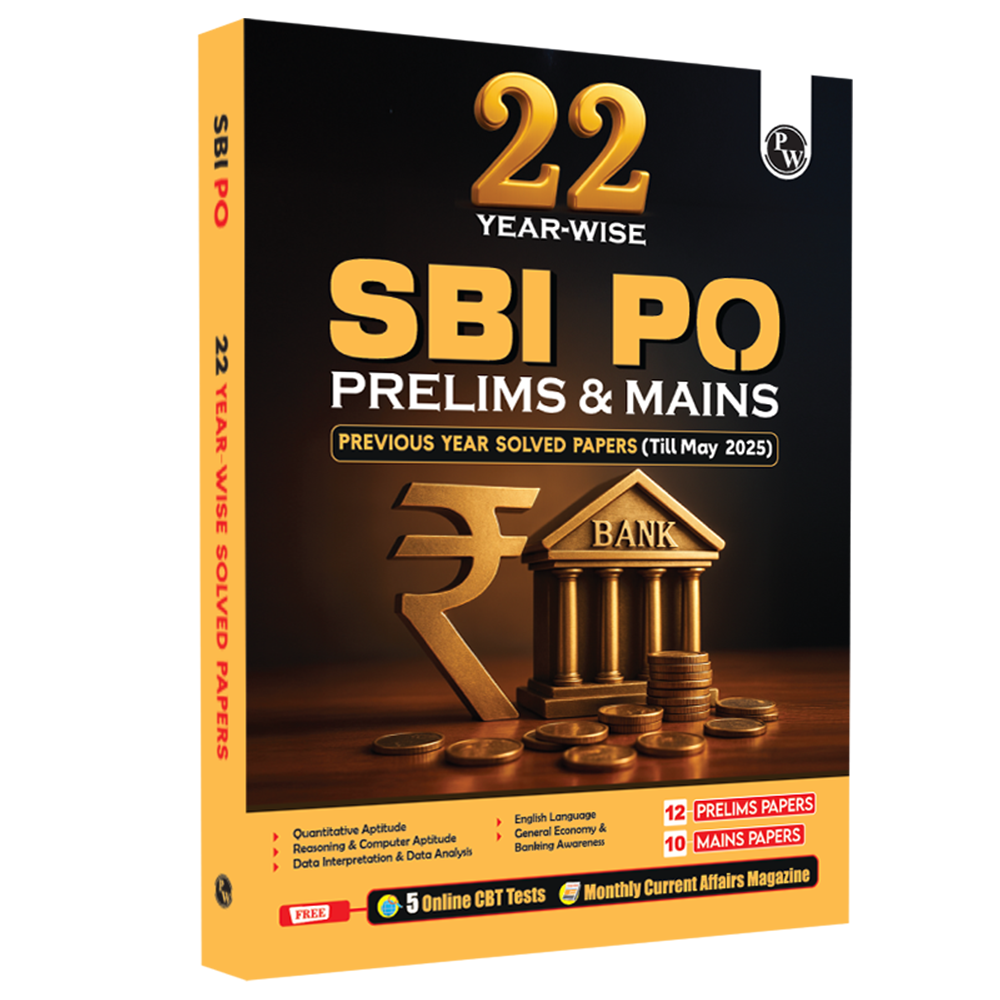7 Mistakes to Avoid for Bank Exam Preparation

7 Mistakes to Avoid for Bank Exam Preparation:- Banking exams are among India’s most prestigious competitive exams, offering positions such as Probationary Officer (PO), Clerk, Specialist Officer (SO), and Regional Rural Bank (RRB) Officer in reputed public sector banks. Every year, lakhs of aspirants appear for these exams with the dream of securing a stable and rewarding career in the banking sector. However, despite dedicated bank exam preparation, many fail to clear the exam on their first attempt.
The reason is not always a lack of knowledge but rather some common mistakes that affect success. From not following the latest bank exam syllabus to ignoring mock tests and time management, small yet significant errors can cost aspirants their chances. Regardless of your preparation level, making these seven mistakes can make it difficult to crack the exam.
To ensure success, candidates must follow a disciplined approach, avoid these mistakes, and improve their strategy. In this article, we will discuss the seven biggest mistakes aspirants make while preparing for banking exams and how to avoid them for a more effective and result-oriented preparation.
7 Mistakes to Avoid for Bank Exam Preparation
Bank exams are one of the most competitive exams in India, requiring a strategic and disciplined approach to preparation. Many aspirants struggle to crack these exams on the first attempt due to common mistakes that affect their performance. To succeed, candidates must be aware of these mistakes and work towards avoiding them. Check out the 7 Mistakes to Avoid for Bank Exam Preparation:-
1. Not Reading the Exam Notification Properly
The official bank exam notification provides essential details about eligibility criteria, exam dates, syllabus, selection process, and other important instructions. Many aspirants fail to read this document carefully, leading to errors in their application form or missing crucial updates about the exam. Here are some points to remember:-
-
The notification includes eligibility criteria such as educational qualifications, age limits, and category-based relaxations.
-
It outlines the selection process, including the number of stages (Prelims, Mains, Interview) and their respective weightage.
-
Details about the banking syllabus and any modifications in the exam pattern are provided.
-
Application errors due to negligence can lead to disqualification.
2. Ignoring the Bank Exam Syllabus and Exam Pattern
Many candidates begin their preparation without a clear understanding of the bank exam syllabus and pattern, which leads to ineffective study plans. The syllabus for banking exams is vast, covering topics from reasoning ability, quantitative aptitude, English language, and general/banking awareness. Not knowing the syllabus properly can result in wasted effort on irrelevant topics.
-
The Preliminary Exam generally consists of three sections:
-
English Language (Grammar, Vocabulary, Comprehension)
-
Quantitative Aptitude (Arithmetic, Number Series, Simplifications)
-
Reasoning Ability (Seating Arrangements, Puzzles, Syllogisms)
-
The Mains Exam is more detailed and includes:
-
Data Analysis & Interpretation
-
General and Banking Awareness
-
Advanced Reasoning
-
Computer Knowledge (Basic IT and Banking Software)
-
Negative marking is applicable for incorrect answers in both Prelims and Mains exams.
Must Buy, SBI PO and SBI Clerk Prelims & Mains Previous Year Solved Papers Combo Set of 2 Books
3. Poor Time Management During Exam and Preparation
Time management plays a crucial role in cracking banking exams, both during preparation and while attempting the exam. Many candidates struggle to complete the paper within the given time, leading to poor performance despite knowing the answers.
-
Banking exams are time-bound; Prelims usually last for 60 minutes, while Mains can extend up to 180 minutes.
-
The number of questions is high, and solving them within the time limit requires practice.
-
Devoting too much time to difficult questions can lead to incomplete attempts.
-
Proper time allocation for each section is essential, and mock tests help improve speed.
4. Avoiding Mock Tests and Previous Year Papers
Some candidates believe that studying concepts is enough and do not focus on solving previous year question papers or mock tests. However, mock tests are a crucial part of bank exam preparation as they provide real-exam experience and help improve accuracy.
-
Mock tests help in understanding the exam pattern and frequently asked questions.
-
They assist in improving speed and accuracy, which are essential for clearing cut-offs.
-
Regular mock tests provide a performance analysis, allowing aspirants to identify weak areas.
-
Solving previous year papers gives insight into question trends and difficulty levels.
5. Using Too Many Study Materials and Bank Exam Preparation Books
Referring to too many bank exam preparation books can create confusion and lead to an overload of information. Many aspirants make the mistake of switching between multiple resources instead of focusing on selective and reliable materials.
-
Studying from multiple sources can lead to different explanations for the same concept, causing confusion.
-
Stick to a single book for each subject and revise it multiple times.
-
Relying on well-structured study materials ensures clarity and strong conceptual understanding.
6. Ignoring Negative Marking and Calculation Errors
Many banking aspirants underestimate the impact of negative marking and make careless mistakes during the exam. Negative marking is one of the biggest reasons why candidates fail to clear the exam despite attempting a high number of questions.
-
For every incorrect answer, 0.25 marks are deducted, which can significantly lower the final score.
-
Random guessing increases the risk of negative marking and reduces accuracy.
-
Calculation errors in the Quantitative Aptitude section can lead to wrong answers.
-
Double-checking answers and using elimination techniques help in reducing mistakes. Aspirants should focus on accuracy rather than attempting more questions blindly.
7. Lack of Revision and Not Making Short Notes
Many candidates study extensively but fail to revise the concepts before the exam. Lack of revision can lead to difficulty in recalling formulas, tricks, and important concepts during the exam. Additionally, not making concise notes makes last-minute revision challenging.
-
Regular revision is crucial to recall what has been studied over time.
-
Making short notes for formulas, important rules, and banking awareness helps in quick revision.
-
Summarising complex topics in easy-to-understand points makes recalling them easier.
-
A structured revision plan ensures that all important topics are covered before the exam.
How to Prepare for Bank Exams Avoiding Mistakes?
-
Understand the Bank Exam Notification
Carefully read the official notification to know the bank exam syllabus, eligibility criteria, exam pattern, and any changes in the selection process. Ignoring small details can lead to confusion or disqualification. -
Follow a Structured Study Plan
Create a well-balanced study schedule that covers all subjects, allows time for revision, and includes practice sessions. A consistent study routine helps in better syllabus coverage and reduces last-minute stress. -
Refer to Limited, Quality Study Materials
Avoid using too many banking exam books as it can cause confusion. Stick to standard sources like PW Banking Books, which cover the syllabus comprehensively and provide structured guidance. -
Make Concise Notes for Quick Revision
Writing down important formulas, concepts, and frequently asked topics in a simplified manner helps in better recalling and quick revision before the exam. -
Practice Mock Tests and Previous Year Papers
Regularly solving mock tests and past question papers improves time management, accuracy, and familiarity with the exam pattern. Analysing mistakes helps in identifying weak areas. -
Focus on Speed and Accuracy
Bank exams are time-bound, so learning shortcut methods, improving calculation speed, and avoiding silly mistakes are crucial for scoring well, especially in Quantitative Aptitude and Reasoning Ability. -
Revise Regularly
Many aspirants focus only on learning new topics but fail to revise. Scheduled revision ensures that previously learned concepts remain fresh and can be recalled quickly during the exam. -
Stay Updated with Current Affairs
The General Awareness section plays a significant role in bank exams. Reading newspapers, financial magazines, and noting down key economic updates will help in this section. -
Avoid Procrastination and Last-Minute Rush
Delaying preparation can lead to incomplete syllabus coverage and a lack of confidence. Start early and maintain a steady pace to avoid last-minute stress.
Read More: Bank Exams Eligibility Criteria
Bank Exam Preparation FAQs
1. What are the different types of bank exams in India?
In India, bank exams are conducted mainly for recruitment in public sector banks, regional rural banks (RRBs), and the Reserve Bank of India (RBI). The major exams include:
-
IBPS PO & IBPS Clerk (Institute of Banking Personnel Selection for Probationary Officers and Clerks)
-
SBI PO & SBI Clerk (State Bank of India recruitment for officers and clerks)
-
IBPS RRB Officer & Clerk (for regional rural banks)
-
RBI Grade B & RBI Assistant (for the Reserve Bank of India)
-
NABARD Grade A & B (for the National Bank for Agriculture and Rural Development)
2. Is current affairs important for bank exams?
Yes, the General Awareness section includes banking, financial, and economic updates. Reading newspapers, magazines, and monthly current affairs PDFs can help in scoring well.
3. How often should I revise the topics I have studied?
Regular revision is essential to recall concepts. Allocate time for weekly and monthly revision to strengthen your understanding and recall ability.
4. Can I crack the bank exam in the first attempt?
Yes, with dedicated preparation, a well-planned study schedule, and regular practice, aspirants can clear the bank exam in the first attempt. Avoiding common mistakes also increases the chances of success.
5. What are the common mistakes to avoid during bank exam preparation?
Some common mistakes include not following a study plan, ignoring mock tests, using too many study materials, neglecting revision, and mismanaging time during the exam.











